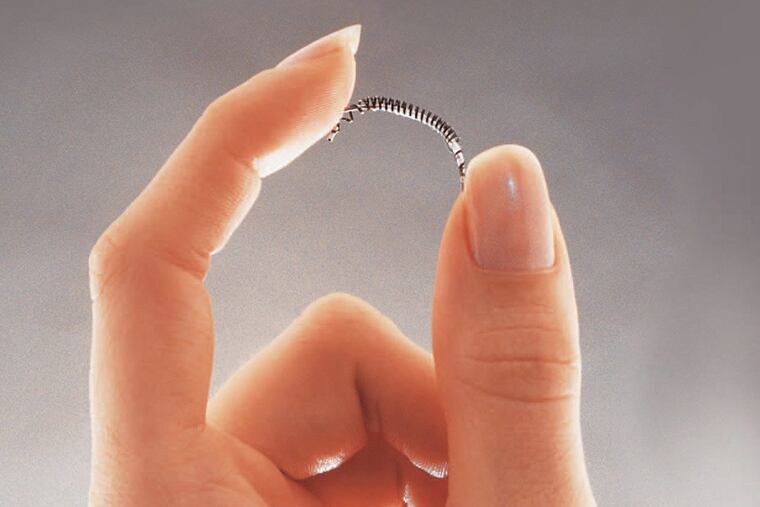FDA: Essure sterilization device can't be sold without 'unique' warnings to patients
The FDA is not satisfied that doctors are informing women about the risks of Essure sterilization coils. The agency is restricting sales to doctors who document the use of a patient warning checklist.

The U.S. Food and Drug Administration on Monday limited sales of Essure sterilization coils to health-care providers who document that they've warned women about the dangers of the device.
In 2016, the FDA ordered Bayer, the manufacturer, to add explicit label warnings and create a "patient-doctor discussion checklist" explaining that the tiny metal coils can cause chronic pain, organ perforation, and allergic reactions.
Since then, U.S. sales of Essure have fallen 70 percent, but "we know that some patients still aren't receiving this important [risk] information," FDA Commissioner Scott Gottlieb said in a statement. "That is simply unacceptable."
The agency called the new rule "a unique type of restriction." Both the health-care provider and patient must sign off on the three-page checklist.
In a news release, Bayer said it would "continue to reinforce the use of the checklist." It also said Essure "is a safe and effective medical device that benefits women by providing them with a valuable contraception option."
Essure, approved in 2002, is an alternative to surgical sterilization. During a procedure that can be done in a doctor's office, the coils are implanted in the fallopian tubes to scar them shut, preventing pregnancy.
In the 16 years since approval, the FDA said it has received more than 26,000 reports of adverse events — almost 12,000 last year alone — including miscarriages, fetal deaths, and other problems. Essure Problems, a Facebook-based advocacy group that claims more than 37,000 members, has lobbied the FDA to take the device off the market.
Angie Marie Firmalino, a co-founder of the group, emailed that members were "excited" to read about the FDA action. "This is a unique restriction, and it will help resolve the issue we brought up with Commissioner Gottlieb, that almost 95 percent of women implanted after the FDA's guidance was issued were not getting the new warnings about Essure."
"We anticipate this to be the final nail in Essure's coffin," said the email.
Exactly how many women have been implanted with the coils remains unclear because Germany-based Bayer, which acquired Essure in 2013, has not released data. It says only that about a million "kits" have been sold worldwide, most of them in the United States.
To close this data gap, the FDA on Monday also ordered Bayer to submit an annual report with the number of devices sold and distributed. This will help the agency "ascertain the frequency and prevalence of adverse events."
Bayer has been hit by thousands of lawsuits over the coils, and has reported hundreds of millions of dollars' worth of losses related to the product. Last year, it announced the discontinuation of sales in markets outside the U.S.